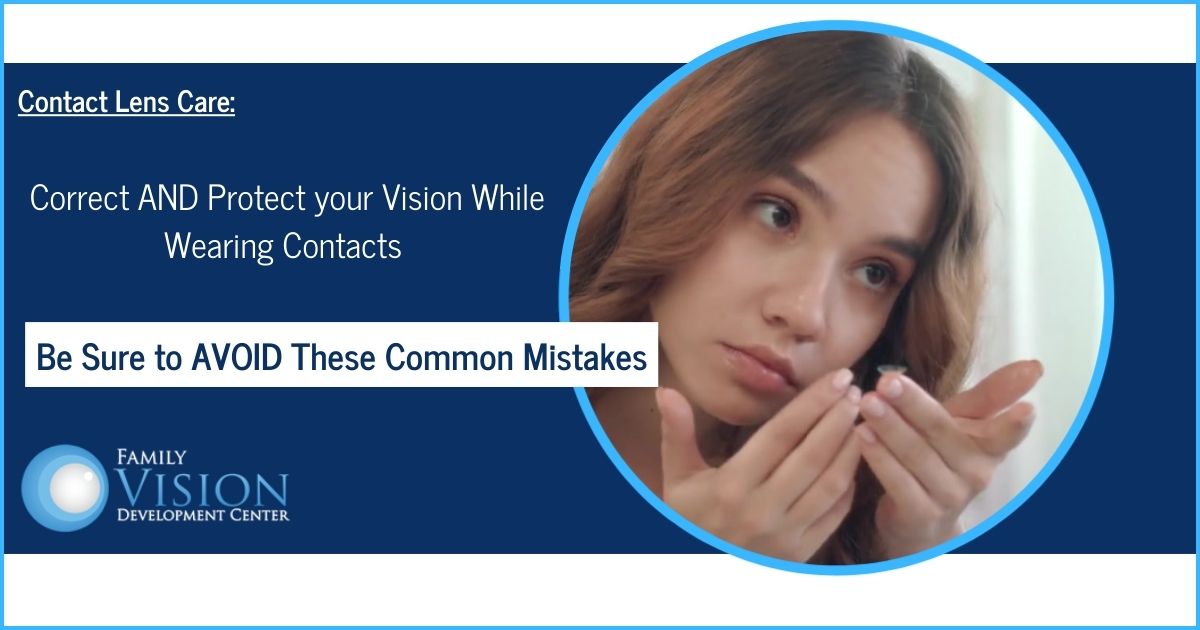Contact lenses are a popular choice for vision correction due to their convenience and unobtrusive nature. However, while they offer freedom from the constraints of traditional eyeglasses, contact lenses require a higher level of care and attention. Unfortunately, many people underestimate the importance of proper contact lens care, which can lead to a number of complications that can affect their eye health. Understanding and avoiding these common mistakes associated with contact lens usage is essential in order to maintain healthy eyes and enjoy the benefits of clear vision.
Sleeping in Contact Lenses
Sleeping in contact lenses is a common oversight that significantly increases the risk of eye infections and corneal complications. The closed-eye environment during sleep can promote the accumulation of bacteria and can reduce oxygen supply to the cornea, which can lead to discomfort, inflammation, or potential long-term damage. Unless your contacts are specifically designed for extended wear, always take them out before sleeping, even if you are just taking a nap.
Neglecting Proper Hygiene
Failing to maintain proper hygiene while handling contact lenses can introduce harmful bacteria and debris to the eyes. Poor hand washing, using saliva to moisten lenses, and ignoring lens case cleanliness are common habits that can lead to severe eye infections and discomfort. Practicing good hygiene is vital to ensure the safety and effectiveness of contact lens use.
Using Tap Water for Cleaning or Storing Contact Lenses
Some individuals resort to using tap water as a substitute for the recommended contact lens solution, not realizing that it contains microorganisms that can adhere to the lenses and cause infections. Tap water may also contain chemicals and impurities that can damage the lenses, leading to discomfort and reduced clarity of vision. To reduce the risk of infection, it is best to keep contacts away from any kind of water.
Failing to Replace Lenses on Time
Overextending the lifespan of contact lenses beyond their recommended usage period can compromise their integrity and lead to discomfort, decreased vision quality, and increased risk of eye infections. This is why it is so important to regularly replace lenses according to our advice during your exam, in order to maintain optimal eye health and visual acuity.
Ignoring Symptoms of Discomfort
When it comes to wearing contact lenses, it is important to pay attention to signs of a potential problem, such as redness, dryness, irritation or pain. Ignoring these symptoms can allow underlying eye issues to worsen, and potentially lead to severe complications. You can’t be too careful with your vision, so if you have any concerns at all about a possible issue with your contacts, always come to see us for an evaluation.
At Family Vision Development Center, our dedicated team will make sure you have the right contact lenses to properly correct your vision. And just as importantly, we will make sure you understand the responsibilities involved in order to protect your eye health. Contact us at 630-862-2020 to schedule your appointment for a vision exam, consultation and to get all of your important questions answered.
Family Vision Development Center is a full-service vision center offering innovative vision therapy services, sports vision therapy services, post-concussive vision rehabilitation, comprehensive vision exams for eyeglasses and contact lenses, management of ocular diseases including glaucoma, diabetes, macular degeneration and cataracts, and a state-of-the-art optical center offering the latest designs in eyewear. We are dedicated to keeping our patients comfortable and well-informed and we will explain every exam and procedure and answer all of your questions. We accept both scheduled and emergency appointments, and offer convenient financing and insurance options to ensure that high-quality vision care is available and affordable to all of our patients.

